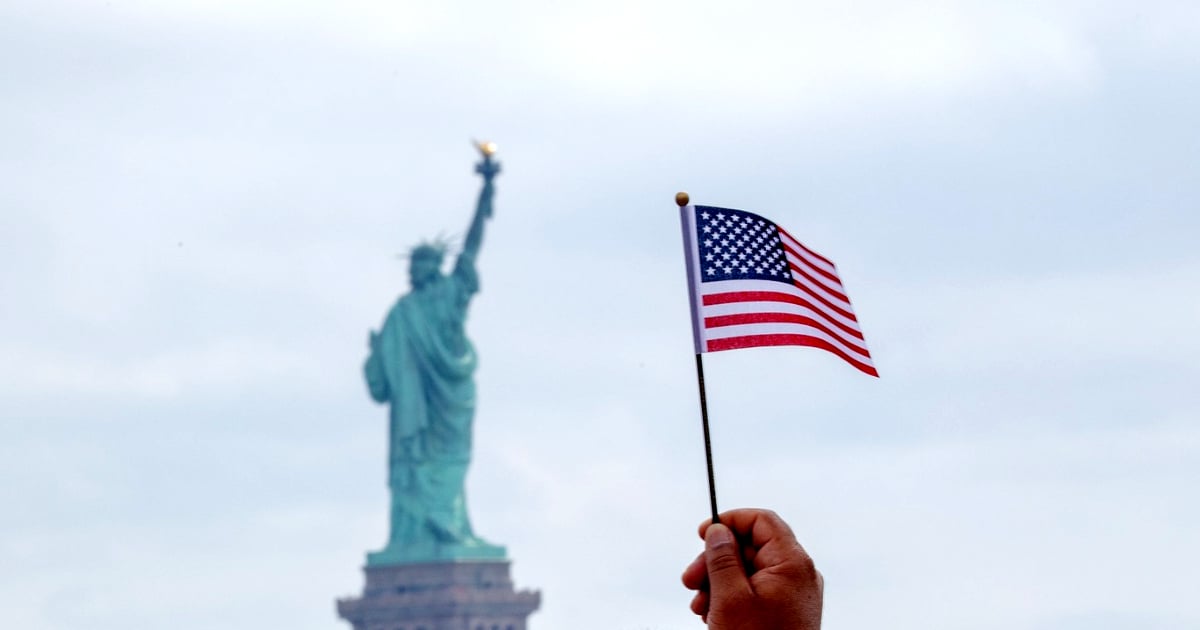The U.S. government has officially reinstated immigration processes for thousands of Cubans benefiting from humanitarian parole, offering a new legal outlook to those whose applications for residency, work permits, or family reunification were previously halted. This decision was confirmed by the U.S. Citizenship and Immigration Services (USCIS) in a federal court in Boston on Friday, stating that all restrictions impeding progress on parole cases for Cubans, Haitians, Nicaraguans, and Venezuelans, including Family Reunification Parole (FRP) and the Uniting for Ukraine (U4U) program, have been lifted.
According to the official document shared by Cuban journalist Wilfredo Cancio Isla on his blog Café Fuerte, pending applications "must be processed to final agency action" once the necessary security checks are completed. This news brings relief to hundreds of Cuban families who, following the revocation of the CHNV program by the Trump administration and the Supreme Court ruling on May 30, faced uncertainty regarding their immigration future.
USCIS has instructed all its offices and divisions—including asylum, refugee, and appeals units—to resume work on previously frozen applications. Updates have also been made to the virtual assistant Enma and the call center scripts, ensuring migrants receive current information when inquiring about their case status.
Judicial Pressure Leads to Policy Shift
This announcement follows judicial pressure, as federal judge Indira Talwani, overseeing a lawsuit filed in March by parole beneficiaries and immigrant advocacy groups, set a deadline of June 19 for authorities to demonstrate compliance with the order to not suspend adjudications. Although the government requested a 24-hour extension due to the Juneteenth national holiday, it ultimately submitted the report on Friday, June 21.
The directive directly impacts thousands of Cubans. Of the over 110,000 who entered the U.S. under the CHNV program, approximately 20,000 have yet to adjust their status under the Cuban Adjustment Act, as they haven't met the minimum one-year residency requirement.
For these individuals, the USCIS announcement opens a critical pathway. The agency reminded that although the humanitarian parole program was formally revoked, cases initiated by its beneficiaries must continue legally as long as there are no indications of fraud or national security threats.
The Turmoil Since Trump's Presidency
Since Donald Trump took office again in January 2025, the humanitarian parole approved by the Biden administration—a vital immigration route for thousands of Cubans and others—has been mired in uncertainty, executive orders, and legal battles. On January 20, the new president signed an executive order to eliminate the CHNV program, which was established to allow safe and legal entry for migrants from Cuba, Haiti, Nicaragua, and Venezuela.
Backed by the Department of Homeland Security (DHS), this measure led to the immediate suspension of ongoing applications and the revocation of already granted benefits like work permits and travel authorizations. The official announcement came in March when the DHS published the cancellation of benefits for over 530,000 migrants in the Federal Register, setting April 24 as the document validity deadline.
The decision left those affected, particularly Cubans who had not yet met the year requirement for the Cuban Adjustment Act, in a state of confusion. Facing the threat of mass deportations, several lawsuits emerged, one filed in the Boston federal court by parole beneficiaries, migration organizations, and legal advocates.
In late April, Judge Talwani granted a temporary restraining order halting the revocation and ordered the government to provide evidence that cases were being processed. However, on May 30, the Supreme Court intervened, allowing the Trump administration to proceed with the cancellation, overturning the previous court order and reigniting deportation fears.
Yet, in an unexpected twist on June 21, USCIS notified the same court that suspensions had been lifted and all pending applications would be processed. The agency explained that a memo had been sent to its offices and systems updated to allow for the adjudication of applications according to current regulations.
A Temporary Resolution in an Ongoing Saga
While USCIS's decision to reactivate application processing provides tangible relief to thousands of Cubans, the story of humanitarian parole is far from over. The program remains formally revoked, and its future as a legal migration route depends on an administration that from day one has sought to dismantle it.
The resumption of applications does not imply a restoration of the program but rather compliance with a judicial order protecting the acquired rights of those already within the system. It's a partial relief, contingent upon the absence of risk or fraud in individual cases, with no guarantees for new applications.
Moreover, the ongoing litigation in the Massachusetts federal court continues, and new rulings could alter the current situation. Additionally, the prospect of the Trump administration issuing future restrictive measures could impact unresolved cases and derived benefits.
In this scenario, the key word remains uncertainty. Cubans with parole must stay informed and documented, seeking legal advice if their cases encounter delays or risks. While the path to immigration adjustment is still possible, it now requires more caution, depending on both individual factors and the shifting political and judicial landscape in the United States.
For now, the message is clear: applications proceed, but the ground remains unstable. Hope persists, but the legal battle is far from over.
Questions About U.S. Parole Program for Cubans
What is the CHNV program?
The CHNV program was created to allow safe and legal entry for migrants from Cuba, Haiti, Nicaragua, and Venezuela into the United States.
How many Cubans are affected by the parole suspension?
Around 20,000 Cubans are estimated to be affected, having not yet adjusted their status under the Cuban Adjustment Act due to not meeting the residency requirement.
What does the reactivation of parole processing mean for Cuban immigrants?
The reactivation means that pending immigration applications will be processed, allowing Cubans to continue their path towards residency or work permits.
Has the humanitarian parole program been restored?
No, the program itself remains revoked. The reactivation of applications is compliance with a court order to process existing cases.
